-
Breathing Data. The Art of Self-Quantification
Weimar / Bauhaus University / 21 January 2025
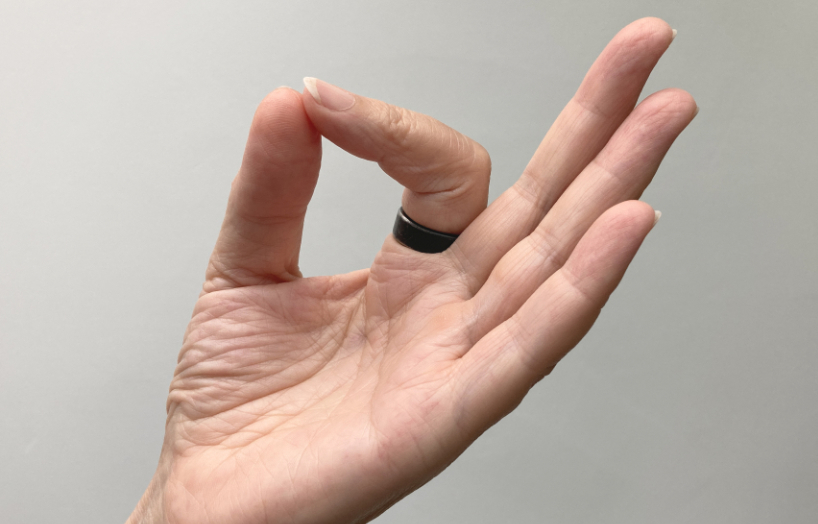
Researcher wearing a sensor ring while doing a Chin Mudra -
Critical Computing
Vortrag zu Breathing Data im Rahmen der Tagung des Instituts für Medienwissenschaften.
Braunschweig / Hochschule für bildende Künste (HBK), Johannes-Selenka-Platz 1 / 27 and 28 June 2024
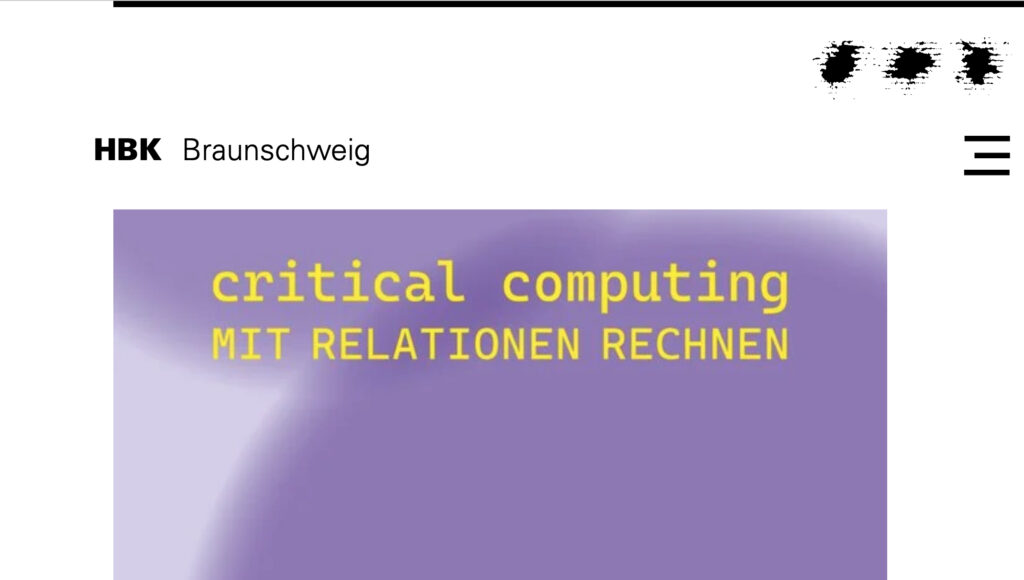
-
Breathing Data
Vortrag von Cornelia Sollfrank im Rahmen der Ringvorlesung Intermedia mit anschließender Diskussion zum Thema künstlerische Forschung.
Köln / Universität FB Kunst & Kunsttheorie/ 25 June 2024
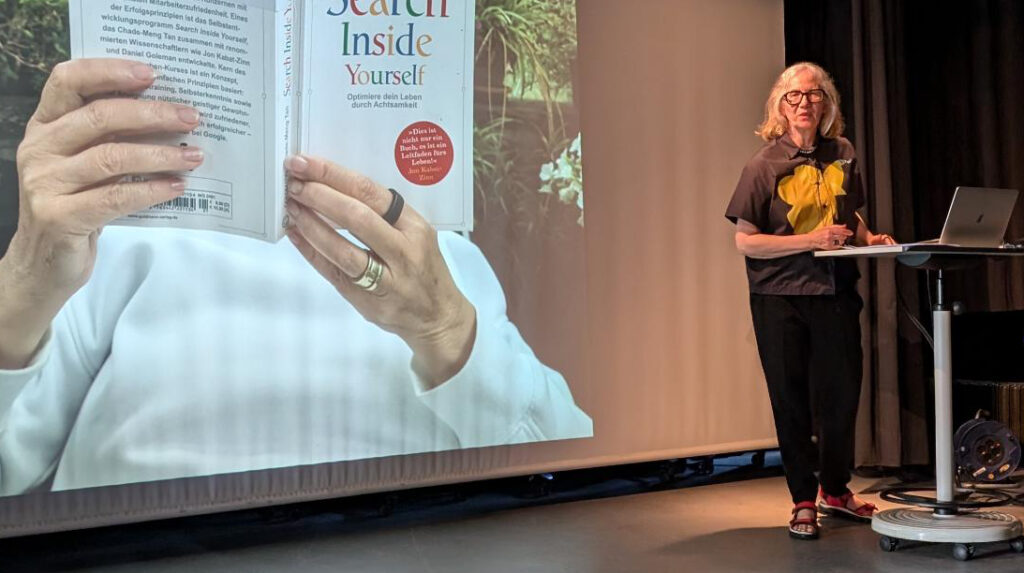
-
Re/Embodied Data. Ambiguities of Knowing
In this symposium, we will investigate the relationship between quantifiable and experiential, abstracted and embodied knowledges.
Berlin / Collaboration between Berlin Open Lab (UdK + TU Berlin) and ZHdK Zürich, Einsteinufer 43, 10587 Berlin / Thursday, 20 June 2024, 09:30
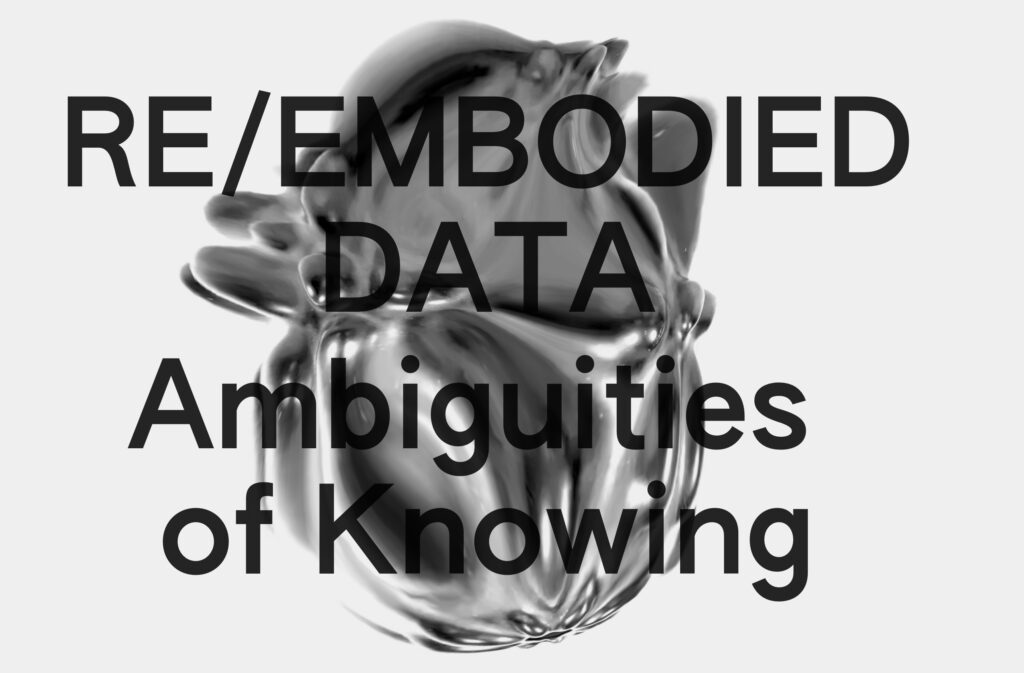
-
Breathing Data – workshop
@ /ETC 2024 (Eclectic Tech Carnival) hosted by Heart of Code, Berlin. Workshop with Cornelia Sollfrank taking place Friday 7 June 2024 at 5pm, Mariannenplatz 2a, 10997 Berlin.
Full program: https://eclectictechcarnival.org/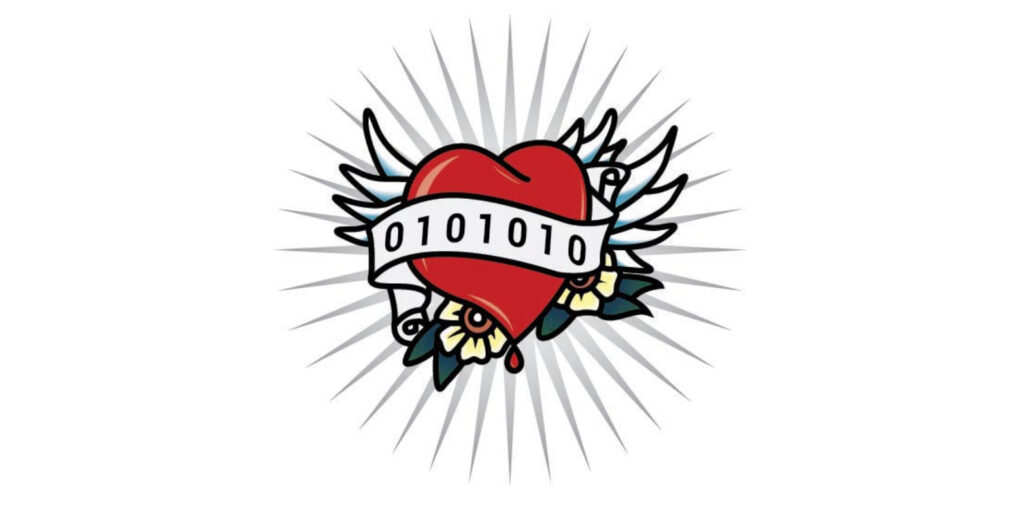
-
DataCyborgs
Ljubljana / Aksioma / Kino Šiška / 27 February 2024
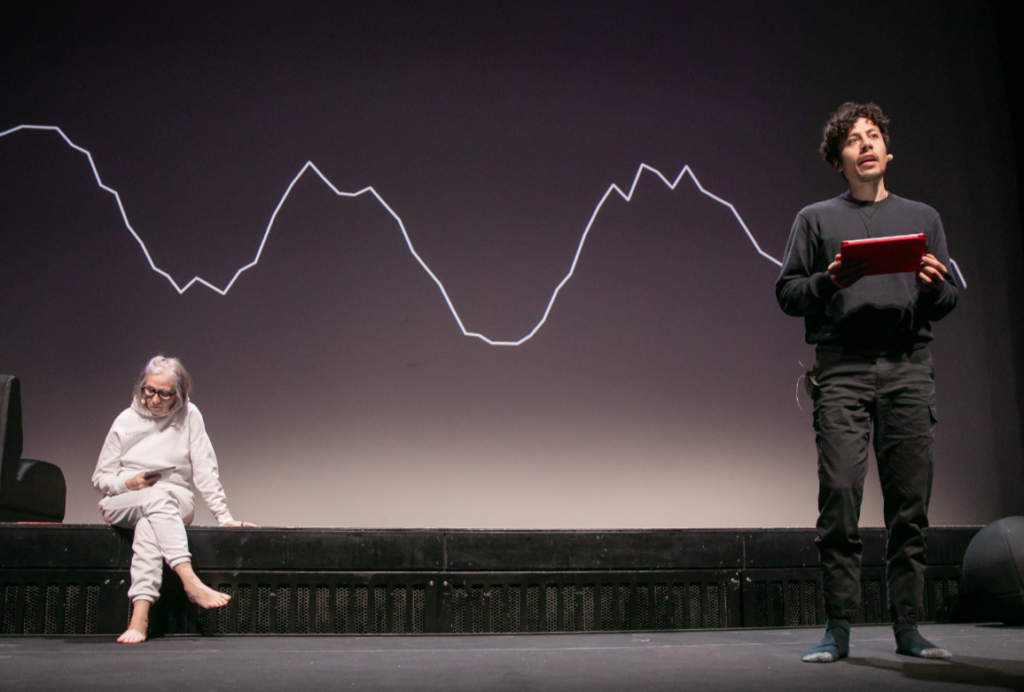
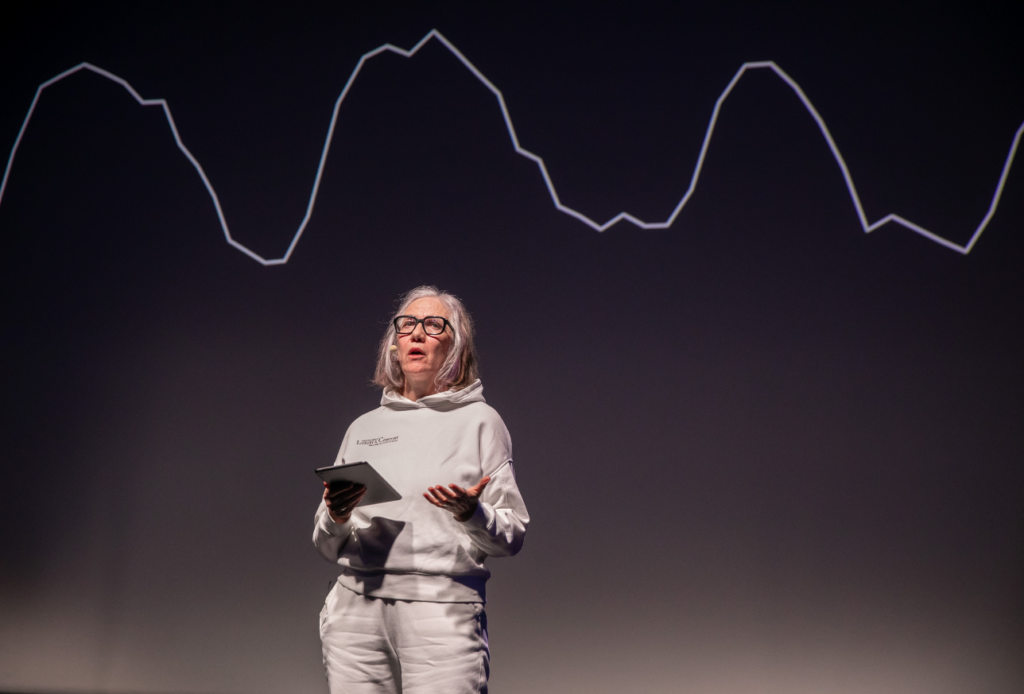
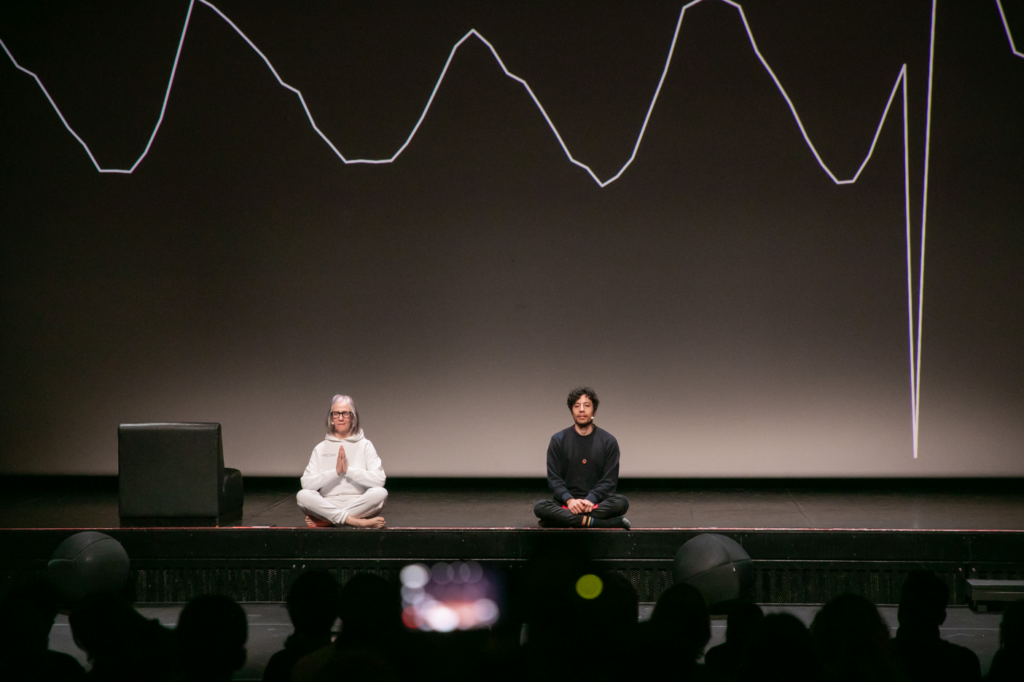
Photos: Miha Fras/Aksioma. CC-BY-NC-SA 4.0 A partially algorithmically generated embodied conversation between three different logics. Lecture performance, Cornelia Sollfrank and Alexandre Puttick
Data cyborgs are hybrid beings. Digital data is their key component, but this data is related to other entities in manifold ways. In this case, an amateur breather provides body data by performing breathing exercises and capturing them with the help of various sensors. The assiduous data scientist studies this data, analyses it and processes it in order to extract knowledge. Eventually, the data itself takes a stance and insists on its own perspective.
-
(un)real data – real effects
Ljubljana / Aksioma / 27-28 February 2024

The 15th edition of Tactics&Practice explores how the ambiguous quality of data can be used as a tool to produce real-world outcomes. Can the act of purposely creating data provide agency within data-driven systems? Is it possible to manipulate data to create specific effects?
-
Breathing Data
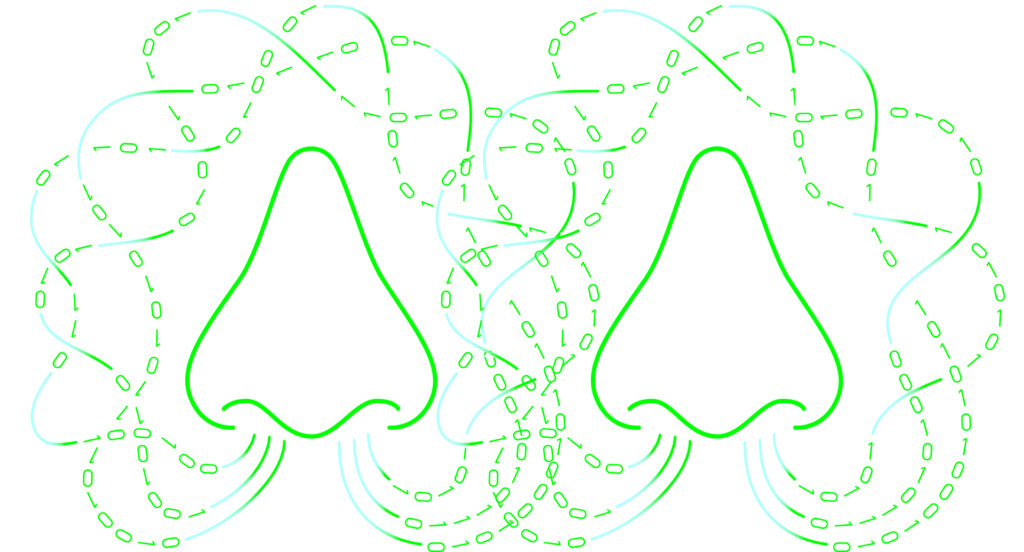
The artistic research project “Breathing Data” is based on a self-experiment. Under investigation is the effect of personalized measurement techniques (bio feedback, body tracking, self-quantification) on individual behavior, and vice versa. The application area of the research is breathing. Throughout the project, the focus is on the interaction between the objectively collected data and the subjective state of mind determined by introspection. This “dialogue with the data” will generate a narrative in which the distinction between perception and measurement, between consciousness and body, and thus between mind and matter will be set in vibration. the project is part of the SNF-funded research project Latent Spaces at ZHdK Zürich.
Doku wiki: https://breathing-data.multiplace.org
-
Latent Spaces – Performing Ambiguous Data
Zürich University of the Arts / since 2021
The research project Latent Spaces takes place in the datafied contemporary and is based at Zürich University of the Arts. The term latent space refers to a (technical/conceptual) realm in which different possibilities co-exist before one (or more) become realized, and it refers to ambiguity, the state in which different valid readings co-exist within a system of meaning. Drawing on the strength of artistic practices, the project develops and performs these perspectives in individual projects not just through critical reflection but also through artistic interventions/creations. Participants include Dr. Felix Stalder, Dr. Alexandre Puttick, Shusha Niederberger, !Mediengruppe Bitnik, Gordan Savicic and Dr. Cornelia Sollfrank. Funded by SNF.
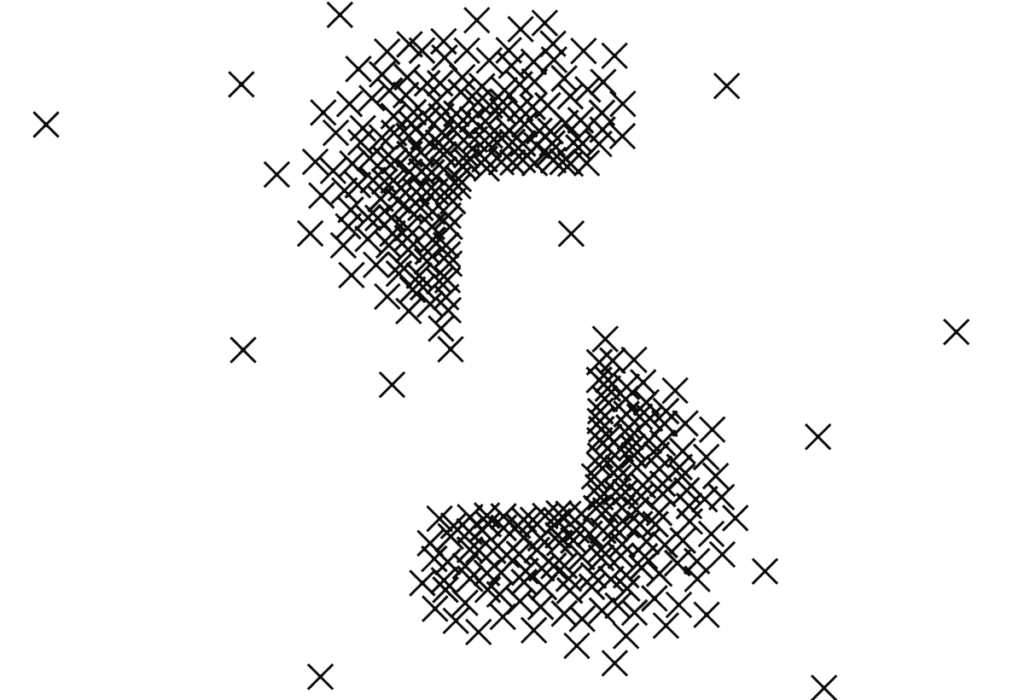
-
Forms of Ongoingness, Interview with Femke Snelting and spideralex
House of Electronic Arts Basel (HeK) / Basel / 16 September 2018
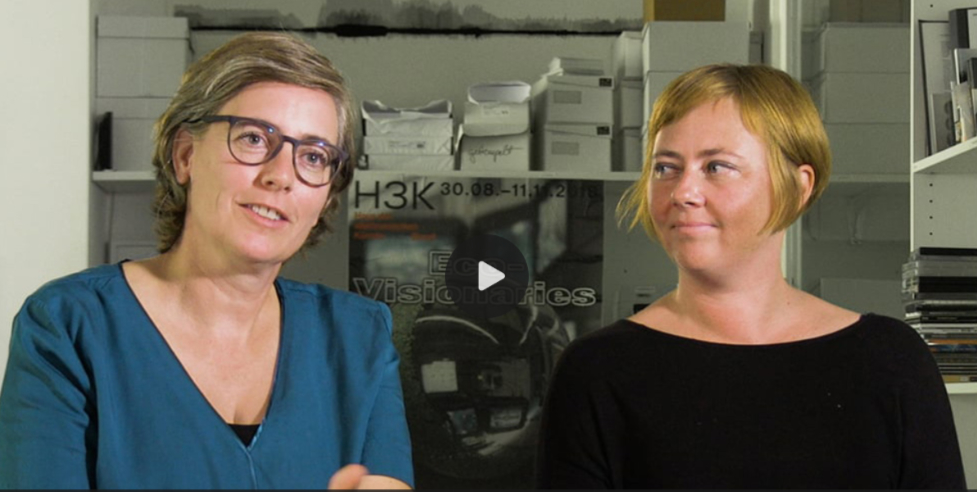
In this interview, Femke and Spideralex talk about their shared practice of engaging with what they call feminist technologies. They discuss their understanding of technology as an embodied practice, that bears desired relations as well as terrible connections. How can we live in ungracious times? They explore, how digital infrastructure could work differently with the help of the feminist server, which is both a real server, a need, and at the same time a thinking tool. Within this discussion, they also address questions of autonomy versus ongoingness, the role of language as a tool of investigation, and the cultural dimensions of technology like expectations of servitude behind functionality. Conducted by Cornelia Sollfrank as part of the Creating Commons research project.
https://creatingcommons.zhdk.ch/forms-of-ongoingness/index.html
-
Creating Commons

The research project Creating Commons took place between 2017 and 2019 and was based at Zürich University of the Arts. The research conducted by Felix Stalder, Cornelia Sollfrank and Shusha Niederberger explored the relationship between digital commons and art by exploring 15 durational (post-)digital artistic projects. Funded by SNF.
-
Producing Organizational Aesthetics. Interview with Olga Goriunova
House of Electronic Arts (HeK) / Basel / 9 January 2019

https://creatingcommons.zhdk.ch/producing-organizational-aesthetics-olga-goriunova/index.html
-
Experimenting with Institutional Formats. Interview with Laurence Rassel
House of Electronic Arts / Basel / 15 June 2018
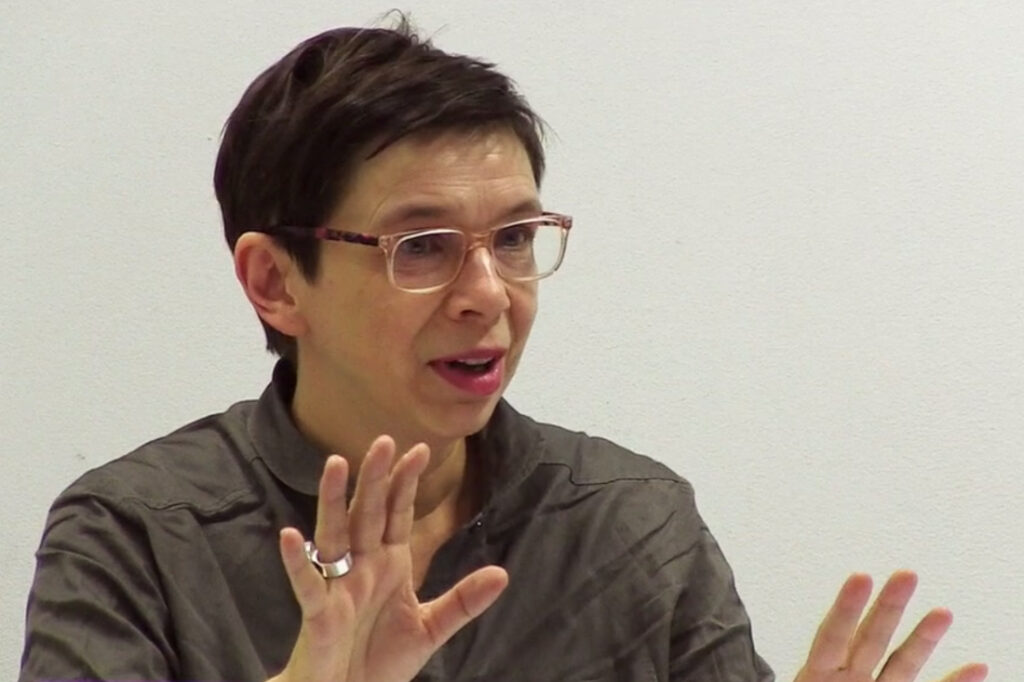
In this interview, Laurence Rassel talks about her work with and inside institutions as emerging through continuous communal practice. She discusses the importance of feminist thinking, open-source technology culture, and Institutional Psychotherapy for her work of making an institution a practice of all of those involved, or in her words: instituting. Conducted by Cornelia Sollfrank as part of the Creating Commons research project.
https://creatingcommons.zhdk.ch/experimenting-with-institutional-formats/index.html
-
Performing the Paradoxes of Intellectual Property.
University of Dundee / 2016-2021
PhD thesis by Cornelia Sollfrank. A practice-led Investigation into the Increasingly Conflicting Relationship between Copyright and Art. The research was based at the Duncan of Jordanstone College of Art and Design at the University of Dundee, UK.
More information: https://artwarez.org/projects/PhD/
https://discovery.dundee.ac.uk/en/studentTheses/performing-the-paradoxes-of-intellectual-property
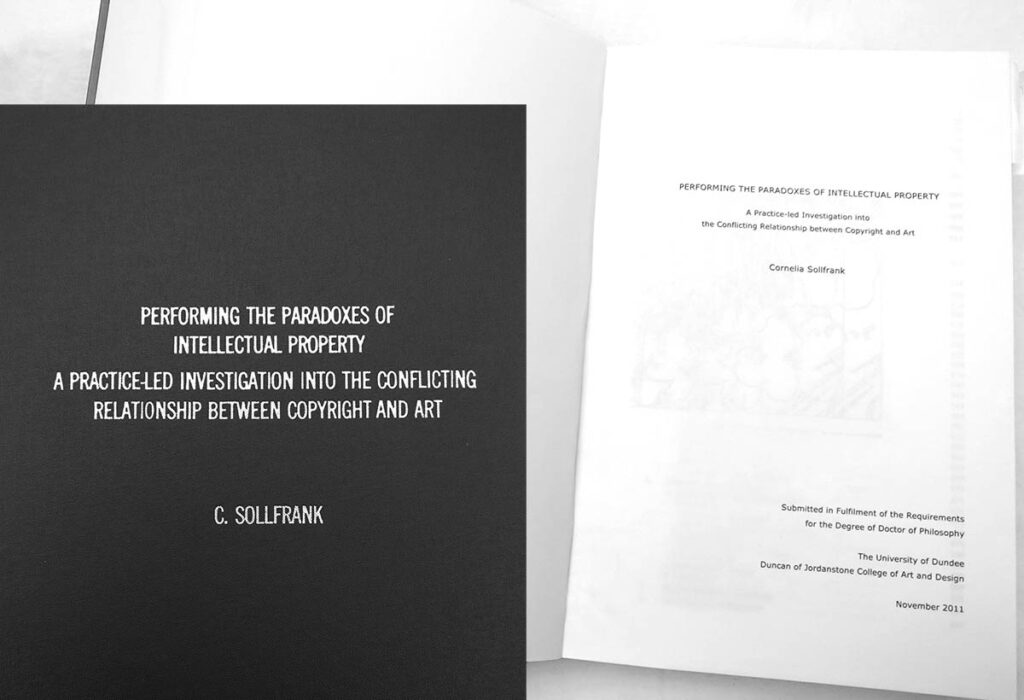
-
Creating Worlds
Vienna / 2009-2012, European Institute for Progressive Cultural Policies (eipcp).
http://eipcp.net/projects/creatingworlds/files/about/
Creating Worlds was a multi-annual research project that investigated the relationship between art production and knowledge production in the context of the transformations and crises of contemporary capitalism. Creativity becomes an ambivalent term here, “creating worlds” meaning a modulating procedure in cognitive capitalism and societies of control, but also an emerging political dimension of creativity as political imagination and invention of new lines of flight, new struggles, new worlds.
….. -
copyright © 2004, Cornelia Sollfrank
Cornelia Sollfrank /2004
The starting point for this text is the question of who can be considered the author of a digital image collage produced by nag_05. The related investigation is based on legal research conducted in the field of copyright for computer-generated works as well as joint authorship, and aims at meticulously discussing as many legal options as possible. The text simultaneously applies and reflects legal thinking as it is performed through the adopting of legal terminology. There is also a video available in which the author reads the text to screen.
-
Woman Hackers
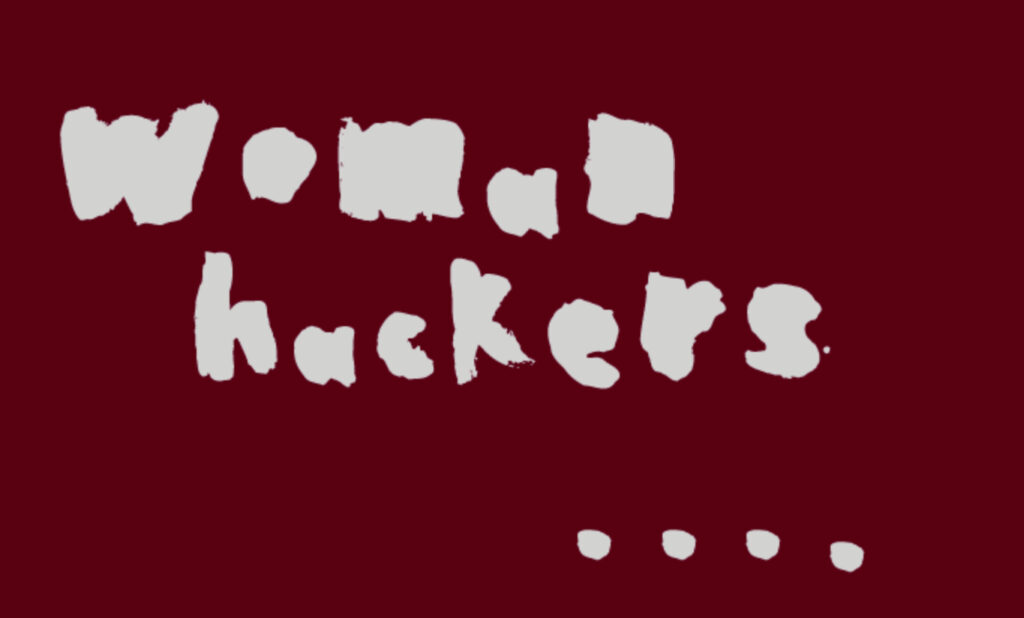
Women Hackers is an artistic research project undertaken in 1999/2000. First part was a research on women hackers in the digital underground. The research has been summarized in a report. From there, Sollfrank developed two interventions: a Guide to Geek Girls, and the video interview with the fictitious female hacker Clara S0pht.
conceptual art